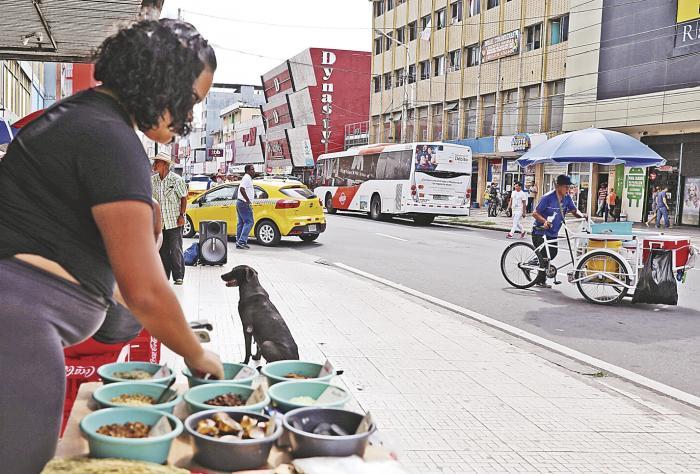
737,000 Panamanians Creating An Informality Crisis
According to data from the National Institute of Statistics and Census, 737,000 Panamanians work informally with no laws or regulations to protect them.
While the Ministry of Labor (Mitradel) indicates that the most predominant demographics in informality are young people and women.
Labor informality is a growing crisis in the country. As a result of the increase in unemployment the figures for people who work unofficially are worrying. The Ministry of Labor (Mitradel) explains that labor outsourcing, complicated government procedures, and discrimination against vulnerable groups are some of the most palpable causes that lead to thousands of Panamanians working unofficially.
People who have informal jobs do not have access to basic labor rights such as vacations, adequate remuneration, or social security, a work schedule with mandatory breaks, vacations, and appropriate remuneration seem like luxuries for those who“play it,”
Panama's Labor Code was drafted in 1972, with a reform carried out last year. Fifty years later we find a completely different panorama regarding the labor realities of Panama.
In addition to the outdated labor regulations in the country, the labor attorney Anselmo Guerra explains:“Informal work has always existed in Panama. No government has bothered to pay due attention to the problem
.” Unlike other Latin American countries, such as Chile, which has levels of occupational informality that do not exceed 30%, and has a labor code that protects the rights of the formally employed population, it is nevertheless flexible with atypical situations in the labor field. In Panama there is no type of legislation or regulation by the Ministry of Labor (Mitradel) that takes informal employees into consideration.'In my opinion (government authorities) have to find a formula to deal the problem, otherwise there will be a social explosion over time,' warns attorney Guerra. He says informal workers are 'up in the air.'It is not only about those who work on their own, but also about those who are under professional service contracts, which, are 'a disguise', since they do not have any protection or worker-employer relationship that provides them with social security or remuneration in cases of occupational risk.
Neither the Social Security Fund nor Mitradel feels obliged to face the problem, even when those who depend on these contracts are in positions that risk their health
The president of Panama's Chamber of Commerce, Cciap), proposes the private company as the agent of change to reduce the impact of this problem, acting as the 'great employer' of the country. 'We insist that the national urgency must be the creation of jobs in the private sector and the promotion of formal entrepreneurship through an adequate framework for business development,' says Marcela Galindo.
A decisive factor in the increase in informality has been the wave of layoffs and the paralysis of contracts experienced during the pandemic.

Legal Disclaimer:
MENAFN provides the information “as is” without warranty of any kind. We do not accept any responsibility or liability for the accuracy, content, images, videos, licenses, completeness, legality, or reliability of the information contained in this article. If you have any complaints or copyright issues related to this article, kindly contact the provider above.






















Comments
No comment